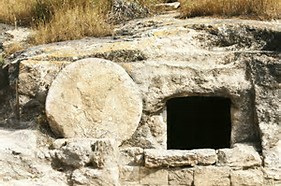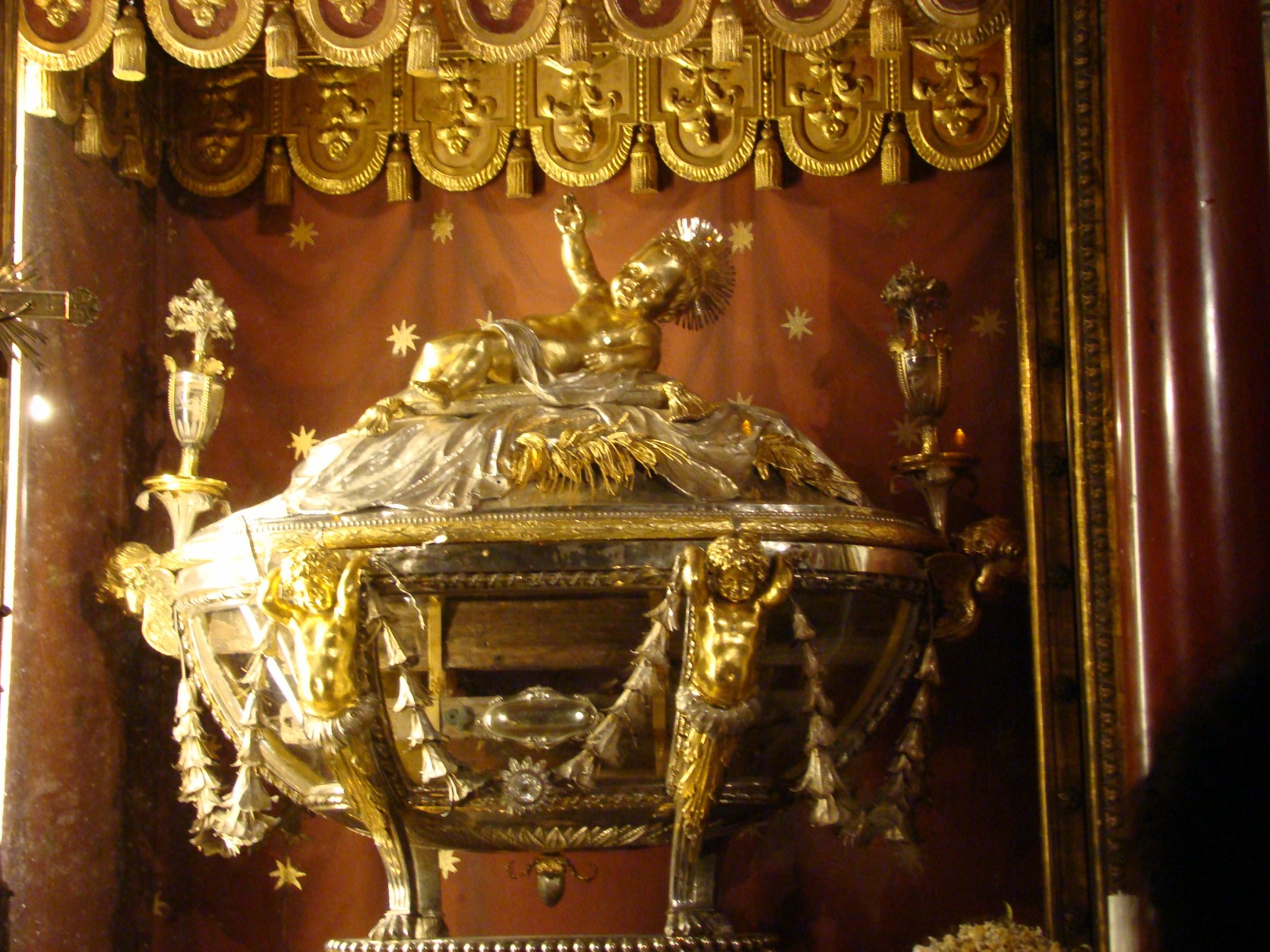Is. 53: 10-11; Ps. 33: 4-5, 18-19, 20, 22; Heb. 4: 14-16; Mk 10: 35-45
“The Lord was pleased to crush him in infirmity.” Really God, it pleases you to crush someone when their down? With friends like that who needs enemies. Have you ever questioned God? Many a saint has because sometimes our understanding and our ways are not God’s ways. A saint questions not from doubt but from trust in the Lord, seeking, searching, hoping and surrendering to God’s will. In sanctity we have a personal relationship with Christ, and he answers us in unexpected ways. Our understanding is egocentric not other focused and at times outside of the context of the “big picture”, what God allows in his salvific plan.
Isiah is prophesizing the one coming who will be crushed for our sins, Jesus Christ in whom the Lord is pleased for giving his life as an offering so that the world might be saved. The will of the Lord is that we may all come to him and through him in the Son it is accomplished. We often refer to God as a God of mercy, love, justice and/or faithful. God said to Moses, “I AM” and he cannot deny himself. Adam and Eve ate of the fruit that represented disobedience and God did not deny himself with the two-edged sword of love and justice. When we eat the fruit of obedience we receive mercy, love, justice, and faithfulness to his promise. It is all ours because he is who is there for us. “For we do not have a high priest, who is unable to sympathize with our weaknesses, but one who has similarly been tested in every way yet without sin.” It is up to us to “confidently approach the throne of grace to receive mercy” and every other gift of grace with “timely help”. He is our Glorified Christ “trustworthy” and “merciful”.
How do I a sinner approach God in confidence? It comes from holding onto our confession. As the body of Christ we the church, confess in the Confiteor “I confess to almighty God…” and in the Creed “I believe in one God…” We profess it together to receive from the one body and blood of Christ. We also confess other claims to God with faithfulness in our acclamations to him. “Jesus I trust in you.” “I claim in the name of Jesus, mercy, healing, victory, and all our supplications.” “Let thy will be done not my will.” “Come Holy Spirit strengthen me by your grace.” “I can do all things in Christ who strengthens me” (Phil. 4:19). For Schoenstatt devotion, “Mother Thrice Admirable Queen and Victorious of Schoenstatt pray for us and bless our families”. There are so many powerful confessions we can hold onto. Which are yours?
The evil one wants us to confess fear, doubt, and self-righteousness. Do these sound familiar? “Oh! my God!” “I can’t believe it.” “It’s not right…” Focusing on our weakness instead of our strengths we lose confidence even in God. What about simply confessing gratitude? “Thank you Jesus. Thank you my Lord and my God.” God will not deny himself in our confessions.
There is one confession we generally do not like to claim. It is to please the Lord in our infirmity. We pray to have the cross removed. Jesus came to witness to the truth and show us the way as servant of God. The offering of our suffering can be joined to Jesus redemptive suffering and we can serve other souls in our families, this world, and souls in purgatory. Waste not a sacrifice! Let it not go by without making an offering of it and you will find grace for timely help. The earth is full of his kindness when we place our hope in him.
Have you ever had a child come up to you and say, “Mom, Dad, or grandma, grandpa I want to ask you something but I don’t want you to say no, please.” That is the way in today’s gospel James and John sound like, children desiring for one to be at Jesus right hand and the other at the left in his glory. In truth they are and so are we children of the most high. Just the question implies they know better but can’t help themselves. Jesus asks them, “Can you drink the cup that I drink or be baptized with the baptism with which I am baptized?” They said to him, “We can.” Careful what you ask for. The cup of salvation was the call to be the servant and “slave of all” and the baptism will be the giving of their life “as a ransom for many” in martyrdom. The calling is for leadership by service in imitation of Christ. Jesus makes known the way of the rulers among the Gentiles is through their authority but our authority is marked by humility in service. Jesus is fulfilling his mission on earth. We too have been called to fulfill our mission of service. Jesus pays the price for redeeming us from the slavery of sin.
Before you doubt and say, “I don’t think I can” consider that our grace has already been given to us through our baptism to say “yes”. Yes, I can be a lector, Extraordinary Minister of the Eucharist, sing in the choir, help with C.C.E. or have a rosary group that makes rosaries and prays the mysteries for the church. The opportunities are waiting. The opportunity to drink from the cup has come and will continue to come awaiting our response with love, divine, love, sacrificial love. It begins in the home the foundation of faith in practice. It goes forth into the world to witness to God’s “I Am” as servants of mercy, love, justice, and faithfulness. In baptism we also die to ourselves, death by 70 X 7 sacrifices in life. Love the sacrifice, waste not the opportunity to make it an offering. If it was easy it would not be called a sacrifice. When we approach it with love it becomes a powerful gift of grace and transformation.
God is present in our lives closer to us than we are to him. We all can receive our own private revelations in life. A few years ago I had one of those unexpected answers to prayer in a personal revelation. I was going through some health problems and in a moment of despair I cried out to God, “God what do you ask of me?” The response was quick and direct. As I was praying, I heard a voice of a man strong and with authority say, “I ask nothing of you.” My first response was fear and then a sense of rejection. For a few days I was troubled pondering both the power of the voice and the words spoken so clearly in my ear. Finally it came to me the awareness of naked truth. God does not need me, I need him. God is giving me the opportunity to serve him in sickness and in health, to make of myself an offering and if it is 1000 deaths or 1000 victories let it be all for his glory. “Jesus I trust in you”.
Tags














Recent Comments